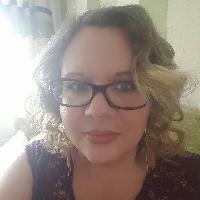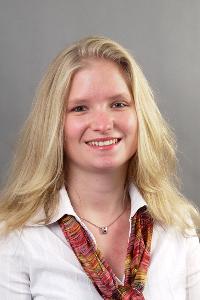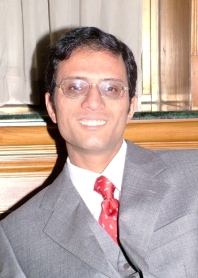| Pages in topic: [1 2] > | What to do - learn another language or develop specialised area? Thread poster: Clare Forder
|
|---|
Hello! I am trying to get started as a translator. I got my MA in Translation a couple of years ago but since then have not really been able to get much freelance work or an offer of an in-house position. I think this is because I have such common language pairs (Fr-En/De-En) and no real area of expertise. Therefore, my question is - to improve my chances in the translation world, should I learn a new language or take some courses to develop better areas of expertise? Thanks in advance for ... See more Hello! I am trying to get started as a translator. I got my MA in Translation a couple of years ago but since then have not really been able to get much freelance work or an offer of an in-house position. I think this is because I have such common language pairs (Fr-En/De-En) and no real area of expertise. Therefore, my question is - to improve my chances in the translation world, should I learn a new language or take some courses to develop better areas of expertise? Thanks in advance for any advice, comments or suggestions! ▲ Collapse
| | | | Joost Elshoff (X) 
Local time: 12:04
Spanish to Dutch
+ ...
There's no need (I think) to start learning another language to get more jobs. What people tell me to do, is to specialize in a small number of fields. There are plenty "general" translators about, and it seems to become a successful translator, one has to specialize rather than diversify.
Specific knowledge of a certain field is what tells you apart from the crowds. So instead of taking language courses to master a 3rd pair, try and find courses of French/German used in Business, M... See more There's no need (I think) to start learning another language to get more jobs. What people tell me to do, is to specialize in a small number of fields. There are plenty "general" translators about, and it seems to become a successful translator, one has to specialize rather than diversify.
Specific knowledge of a certain field is what tells you apart from the crowds. So instead of taking language courses to master a 3rd pair, try and find courses of French/German used in Business, Medicine, Technology etc. ▲ Collapse
| | | |
There is quite a lot of DE-EN work out there (in my experience) and the rates are pretty good (apparently better than FR-EN) so I'd suggest that you specialise in an area that interests you.
I'm a bit biased as I do mainly law, but how about doing something like an LLM in business law (you can do this one through distance learning) - it would give you a lot of options and might also help with getting an in-house position with a global company?
| | | | Inga Jakobi 
Germany
Local time: 12:04
Member (2006)
Chinese to German
+ ...
| I'd say specialise, too | Oct 27, 2006 |
Hi,
this is just my personal opinion, but I think it is more useful to deepen your knowledge in a certain area you are interested in, than learn another language. To bring it to a professional level would take quite some time and then you still don't have a real field of expertise. I translate the other way around, EN-GER, but I also follow the GER-EN postings and there are quite a lot. Maybe being a specialist in one field could help you grasp more of these job offers.
Inga
| | |
|
|
|
Ron Peek 
United Kingdom
Local time: 11:04
German to English
+ ...
| Just sent you an email | Oct 27, 2006 |
Hi Clare,
I just sent you an email.
Kind regards,
Ron
[Edited at 2006-10-27 13:42]
| | | | Serena Dorey (X)
United Kingdom
Local time: 11:04
German to English
| Perhaps try and get some work experience as well? | Oct 27, 2006 |
Hi Clare
I was in the same position as you when I graduated from university two years ago. It's tough - you need experience to get a job and a job to get experience...
Like the others I would suggest that you try and specialise to improve your chances of getting work, be it freelance or an in-house position.
Perhaps also consider getting some work experience by doing an internship? I had several interviews and applied for lots of positions without much succ... See more Hi Clare
I was in the same position as you when I graduated from university two years ago. It's tough - you need experience to get a job and a job to get experience...
Like the others I would suggest that you try and specialise to improve your chances of getting work, be it freelance or an in-house position.
Perhaps also consider getting some work experience by doing an internship? I had several interviews and applied for lots of positions without much success - in the end I was offered a job at the same company in Germany that I had done a 5-month work placement for whilst at uni and I've not looked back since.
I see that we live in the same area, so feel free to contact me via my profile if you'd like to talk more.
Good luck!
Serena ▲ Collapse
| | | | Balasubramaniam L. 
India
Local time: 15:34
Member (2006)
English to Hindi
+ ...
SITE LOCALIZER | If you are more than five years old... | Oct 27, 2006 |
According to current scientific knowledge, if a person is more than five years old, he/she cannot learn a new language. Some extend this limit to 10-13 years.
So if you are older than that, learning a new language for the purpose of translation is out of the question.
That leaves you with only specialization which is always a good idea for translators.
| | | | Matt Baird
Germany
Local time: 12:04
German to English
| Agree: specialize!! Disagree: age limits | Oct 27, 2006 |
I agree with all those above. I was lucky to start an internship while still in college with a machine tool manufacturer as their in-house "translator" (although I don't think you can call what I was doing translating...I was terrible!). But they needed cheap labor so they hired me full-time after college and I was able to develop my skills as a translator and specialize at the same time. so they hired me full-time after college and I was able to develop my skills as a translator and specialize at the same time.
When I made the transition to... See more I agree with all those above. I was lucky to start an internship while still in college with a machine tool manufacturer as their in-house "translator" (although I don't think you can call what I was doing translating...I was terrible!). But they needed cheap labor so they hired me full-time after college and I was able to develop my skills as a translator and specialize at the same time. so they hired me full-time after college and I was able to develop my skills as a translator and specialize at the same time.
When I made the transition to freelancing, I listened to my peers who told me to specialize so I marketed myself as a machine tool and automotive translator. The jobs didn't come flying in, but the ones that did were the right ones and I slowly built a good client base. I became the primary or one of the top translators for a couple of my early clients for these specializations so the work kept coming. Although I've branched out into other industries since then, I still focus on these roots when marketing my skills.
If you continue to find it difficult to find work, both freelance and in-house, consider an internship as suggested above. You may have to work part time on the side to make ends meet (I used to wait tables), but you'll gain valuable experience that you can build on.
With regard to the comments on age and learning a new lanuguage. I didn't speak a word of German before moving there in 1994. Learning a language as an adult is certainly more difficult, but not impossible even to become a translator. That said, I don't translate into German, but its not recommended for anyone to translate into their second language. Of course, if you started learning that second language as a child and truly use both language growing up then it's basically a second mother tongue and in that case you've got an advance.
Best of luck getting started!
Matt ▲ Collapse
| | |
|
|
|
Michele Fauble 
United States
Local time: 03:04
Member (2006)
Norwegian to English
+ ...
| Out of the question? | Oct 27, 2006 |
Balasubramaniam wrote:
According to current scientific knowledge, if a person is more than five years old, he/she cannot learn a new language. Some extend this limit to 10-13 years.
So if you are older than that, learning a new language for the purpose of translation is out of the question.
Balasubramaniam is being facetious here. Of course an adult can learn a new language - I've learned seven. What is not possible is to learn a new native language after around the age of 13-14.
[Edited at 2006-10-27 18:55]
| | | | Roomy Naqvy 
India
Local time: 15:34
English to Hindi
+ ...
| What scientific knowledge? | Oct 27, 2006 |
Michele Fauble wrote: Balasubramaniam wrote:
According to current scientific knowledge, if a person is more than five years old, he/she cannot learn a new language. Some extend this limit to 10-13 years.
So if you are older than that, learning a new language for the purpose of translation is out of the question.
Balasubramaniam is being facetious here. Of course an adult can learn a new language - I've learned seven. What is not possible is to learn a new native language after around the age of 13-14. [Edited at 2006-10-27 18:55]
I agree with Michele. Balasubramaniam, my friend, you are wrong here. I know of a person, Professor M Asaduddin, and he's presently the Dept Chair in my University in New Delhi, India. He is really proficient in Assamese, Urdu, Hindi, English, Bengali, and I suspect he picked up his Urdu quite late in life, most probably later than the ages that you mentioned with 'scientific proof'. [I can ask him when he did learn Urdu for your knowledge.] But he's very well known as a proficient Urdu to English translator with books by Oxford University Press, India as well as OUP, Pakistan, and Pengiun India to his credit. He also won the Sahitya Akademi (National Academy of Letters, India) Award for Translation, 2004. This was for his book, Lifting the Veil: Selected Writings of Ismat Chughtai from Urdu into English. The same person was also Visiting Fellow: University of East Anglia, Norwich, UK, 2001. You can look at his profile on our University website at http://jmi.nic.in/FHum/masaduddin_eng.htm
So, I would warn against such sweeping generalisations because going by your yardstick, all his awards wouldn't be worth anything.
And then there was the former Indian Prime Minister, P Narasimha Rao, who was well known as a polyglot. Did he learn all his languages by 5 yrs or whatever?
Roomy
| | | | Latin_Hellas (X)
United States
Local time: 12:04
Italian to English
+ ...
| Experience, Specialize, New Languages | Oct 27, 2006 |
I agree with those who emphasize specialization over branching out into a new language.
However, a couple of people emphasized experience first. In my experience, customers value experience more than an MA in language/translation. Others may have a different experience, which is fair enough.
So, probably the best track is to 1) gain experience in a field of interest, or better, in field that is useful to paying customers (like Matthew did), 2) specialize ... See more I agree with those who emphasize specialization over branching out into a new language.
However, a couple of people emphasized experience first. In my experience, customers value experience more than an MA in language/translation. Others may have a different experience, which is fair enough.
So, probably the best track is to 1) gain experience in a field of interest, or better, in field that is useful to paying customers (like Matthew did), 2) specialize in that field in your language pairs, 3) eventually, branch out into other, preferably related, languages, focusing on your field of specialization.
Other tracks are possible, of course.
Two points about learning another foreign language after a certain age.
Certainly learning a third or fourth cognate language is easier than learning one (or two) more from a different language family.
In any case, granted that learning a new language after a certain age may be difficult, but this has more to do with motivation and enthusiasm than age: your interests, motivation and enthusiasm may waver, not your brain power ...
... until senility or alzheimers sets in, but learning a third or fourth language is good preventive medicine!
[Edited at 2006-10-27 23:47]
[Edited at 2006-10-27 23:48] ▲ Collapse
| | | | Henry Hinds 
United States
Local time: 04:04
English to Spanish
+ ...
In memoriam | C'mon, Balasubramaniam | Oct 28, 2006 |
You say "According to current scientific knowledge, if a person is more than five years old, he/she cannot learn a new language. Some extend this limit to 10-13 years."
How much can a five year old translate? Or a 10 to 13 year old? Don't tell me you learned all that good stuff at your mother's knee, I certainly didn't.
That current scientific knowledge sounds like bunk to me.
We live, and we learn; and the longer we live, the more we learn.
W... See more You say "According to current scientific knowledge, if a person is more than five years old, he/she cannot learn a new language. Some extend this limit to 10-13 years."
How much can a five year old translate? Or a 10 to 13 year old? Don't tell me you learned all that good stuff at your mother's knee, I certainly didn't.
That current scientific knowledge sounds like bunk to me.
We live, and we learn; and the longer we live, the more we learn.
We have to wire the brain. My brain became wired for English and for Spanish, and from there it also took quite a while to wire it for translation and interpretation. That was the hard part, wiring the brain for that; it is not natural.
I don't know how many people here are aware of this. To reach the upper limits you must wire the brain, not only for the languages but for the entire process. You are not born with it; you must acquire it by working on it constantly through a lifetime.
The subject here is "specialize". Getting back to that, your task is to wire the brain; best only in two languages you know perfectly, and in fields you know well. Realize, of course, that you can never know enough, but you must try every day to know more; more languages no, more fields, yes. ▲ Collapse
| | |
|
|
|
| bogus science | Oct 28, 2006 |
Balasubramaniam wrote:
According to current scientific knowledge, if a person is more than five years old, he/she cannot learn a new language. Some extend this limit to 10-13 years.
So if you are older than that, learning a new language for the purpose of translation is out of the question.
Balasubramaniam,
I'd like to see evidence of this "current scientific knowledge". A simple statement that seems to exclude any divergent permutation of human experience. I know five UN interpreters and translators. Creme de la creme of our profession. They all studied languages at university. I did not begin studying foreign languages until I was 16 (German). If the facility and inclination are there, age does not matter I think. Add to that the constant gray matter practice that we translators do by reading, learning a language at any age is a simple matter of application.
To answer the original question: specialize and/or learn a cognate language like Portuguese or Italian.
Marcus
| | | | Balasubramaniam L. 
India
Local time: 15:34
Member (2006)
English to Hindi
+ ...
SITE LOCALIZER | Even Tagore, Hemingway and Conrad couldn't do it... | Oct 28, 2006 |
Dear Henry, Roomy and other friends,
You people seem to want to make learning languages a child's play (which it actually is, of course, in another sense!).
India’s first Nobel Prize winner, the Bengali writer, Rabindranath Tagore, in later life developed a passion for learning English. He would translate his own Bengali poems into English. In fact, the Bengali poem for which he won the Nobel prize, Geetanjali, was translated by him into English. It was probably vette... See more Dear Henry, Roomy and other friends,
You people seem to want to make learning languages a child's play (which it actually is, of course, in another sense!).
India’s first Nobel Prize winner, the Bengali writer, Rabindranath Tagore, in later life developed a passion for learning English. He would translate his own Bengali poems into English. In fact, the Bengali poem for which he won the Nobel prize, Geetanjali, was translated by him into English. It was probably vetted by his friend W.B. Yeats.
Another Indian (Hindi) poet, Harivanshray Bachchan, yes, the father of the famous Hindi superstar, Amitabh Bachchan, did his doctoral thesis from Cambridge University, on the use of occult symbolism in W.B. Yeats’ poems. In this connection he did intensive research on W.B. Yeats and also met the living relatives of W.B. Yeats. Mr. Bachchan (senior) has recorded in his autobiography that Yeats held a poor opinion of Tagore’s English. According to Yeats, Tagore did not know how to write English.
The second example I would like to take is from these forums itself. One of our member translators, a native English speaker and a TOFEL trainer, has written in another forum post that he has examined the writings of Hemingway and Joseph Conrad, both non-native writers of English. He says that both their writings are full of syntaxes, usages and word orders that are quite un-English, and in the case of Hemingway, clearly smack of Spanish influence.
If such great literary talents as Tagore, Hemingway, and Conrad could only master a foreign language imperfectly do we lesser mortals have any better chances of doing so?
At the most you can pick up enough of a foreign language, in a crash-course learning mode, to be able to ask for directions in case you get lost in a foreign land, or order the right kind of food in a restaurant.
When we talk of translators learning a foreign language, we are not talking about this level of proficiency in a foreign language, but a near-native level of proficiency, which can be acquired at adult ages in only in the rarest of the rare cases, making even an effort in this direction, a futile exercise.
I can also talk of my own experiences. I have been exposed to the following languages in chronological order: Tamil, Malayalam, Hindi, English and Gujarati. While I was exposed to the first four in childhood itself, my first brush with Gujarati took place when I landed up on the shores of Gujarat in my mid-twenties for my first job after completing college. Although I have been in Gujarat since then and it is now more than two decades, I still can’t speak or write Gujarati, though I can understand more than 80 per cent of all that I hear or read. I even sometimes translate from Gujarati into Hindi and English, which two are my main working languages.
The point I want to make here is that language learning becomes progressively more difficult as you age. It took me very little effort, in fact none at all, to learn Tamil, Malayalam, Hindi or English, I have failed to learn Gujarati perfectly even after 20 years of sustained effort. I can’t be a notable exception. I can only be representative of the normal human faculties for learning languages. ▲ Collapse
| | | | Balasubramaniam L. 
India
Local time: 15:34
Member (2006)
English to Hindi
+ ...
SITE LOCALIZER | Quite possible in this case... | Oct 28, 2006 |
Roomy Naqvy wrote:
I know of a person, Professor M Asaduddin, and he's presently the Dept Chair in my University in New Delhi, India. He is really proficient in Assamese, Urdu, Hindi, English, Bengali
If you look at the political map of India, Roomy, you will at once see that Assam shares borders with both Bengal (Bengali-speaking area) and Bihar (Hindi-Urdu-speaking area).
So it is not at all improbable that Prof. Asaduddin was exposed to all these languages at a very young age, which would easily explain his seemingly unusal felicity in so many languages.
This kind of phenomenon is quite routine in India where people living on the borders of two linguistic areas pick up excellent command of both these languages and they also eventually learn Hindi and English at school.
But the key to mastering a language is exposure to it at a very young age.
[Edited at 2006-10-28 14:21]
| | | | | Pages in topic: [1 2] > | To report site rules violations or get help, contact a site moderator: You can also contact site staff by submitting a support request » What to do - learn another language or develop specialised area? | Trados Studio 2022 Freelance | The leading translation software used by over 270,000 translators.
Designed with your feedback in mind, Trados Studio 2022 delivers an unrivalled, powerful desktop
and cloud solution, empowering you to work in the most efficient and cost-effective way.
More info » |
| | Anycount & Translation Office 3000 | Translation Office 3000
Translation Office 3000 is an advanced accounting tool for freelance translators and small agencies. TO3000 easily and seamlessly integrates with the business life of professional freelance translators.
More info » |
|
| | | | X Sign in to your ProZ.com account... | | | | | |














